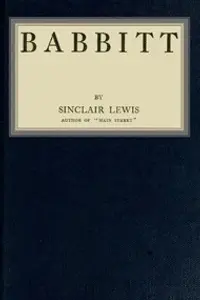Summary
Meet George F.
Babbitt: a prosperous real estate agent, loyal Rotarian, and proud citizen of Zenith, a booming Midwestern city.
On the surface, Babbitt has it all — a comfortable suburban home, a loving (if distant) family, and a thriving career in a city obsessed with progress, conformity, and consumerism.
But beneath his boosterish enthusiasm and predictable routines, Babbitt is quietly suffocating. He begins to question the values that define his world — the empty social rituals, the mindless worship of business success, and the shallow morality of middle-class respectability.
A brief flirtation with rebellion—dabbling in liberal politics, artistic friendships, and even a romantic affair—leads him into personal crisis and social ostracism.
Ultimately, Babbitt must confront the question: Is it better to belong and conform, or to think and live freely—even at great personal cost?
First published in 1922, Babbitt is a biting satire of American middle-class life and its obsession with material success and social status.
Through the sharply drawn character of George Babbitt, Sinclair Lewis delivers a scathing critique of conformity, capitalism, and the hollow pursuit of the American Dream—earning him the distinction of being the first American writer to win the Nobel Prize in Literature.
